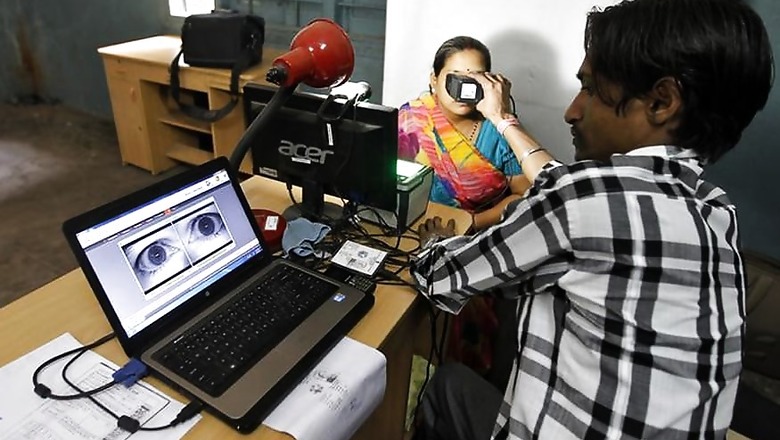
views
New Delhi: Even as it kept up its counter to treat privacy as a fundamental right, the Central government has constituted a committee to evolve principles regarding data protection.
On Tuesday, Additional Solicitor General Tushar Mehta apprised the nine-judge bench of the constitution of the 10-member committee as the senior counsel opposed assigning privacy the status of a fundamental right.
The ASG said that the government has notified setting up the panel a day ago and that it will be headed by former Supreme Court judge B N Srikrishna.
Mehta, who was appearing for UIDAI, added the committee will also comprise UIDAI CEO Ajay Bhushan Pandey and advocate Arghya Sengupta, founder and research director of Vidhi Legal.
“This committee will examine and evolve principles regarding data protection,” said the ASG, even though he added in the same breath that elevating privacy as a fundamental right will have dangerous repercussions.
Mehta began his arguments by saying that UIDAI's position was clear that privacy was not a fundamental right and that such an amorphous right could not be given such a status.
He contended that legislature was better equipped to protect some forms of privacy through statutory enactments, which can be tested on the judicial principles.
But the bench shot back that there was a sea difference between interpretation of a statute and the Constitution and that it was for a constitutional court and not for the Parliament to interpret the latter.
"Fundamental rights need to be interpreted according to changing needs of the times. Constitution cannot be interpreted like a statute. Words not important (in interpretation of the Constitution), the principles are...and that task is with us, the court...not the Parliament," said Justice Rohinton F Nariman.
Mehta agreeed with the bench but insisted that privacy was indeed a valuable right but it was definitely not a fundamental right.
At one point, Justices S A Bobde and D Y Chandrachud also questioned what will be the remedy of an individual if a law is made tomorrow that either invades privacy or deprives privacy.
"Since you argue it is not a fundamental right, how will an individual challenge such a law? He can approach a constitutional court only when the law violates some fundamental right," the bench said. Mehta said this will have to be adjudicated on a case by case basis.
The ASG concluded his arguments by saying that amenities like food and toilets are more important than privacy in India.
Senior lawyer Rakesh Dwivedi, appearing for BJP-ruled Gujarat, also opposed treating privacy as a fundamental right. As Dwivedi pointed out that technology should have a life enhancing effect, Justice Chandrachud supported his contention.
"Privacy must not stifle innovation in information technology...it should not take away the benefits of knowledge economy," said Chandrachud, adding that privacy must develop in a sociocultural context.
The arguments in the matter will resume on Wednesday.



















Comments
0 comment